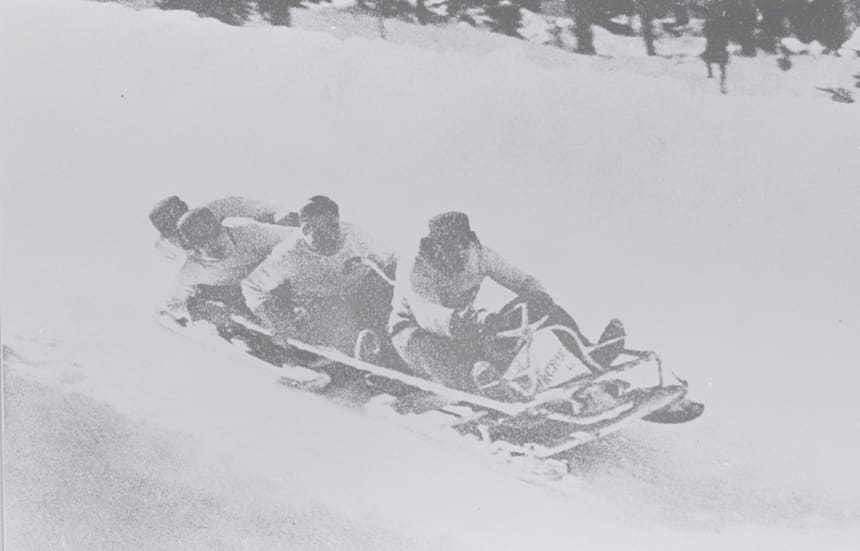Scherrer’s stroke of luck leads to Olympic success
When Captain Eduard Scherrer, a native of Switzerland, the spiritual home of bobsleigh, entered a local raffle in the early 1920s, competing at the Olympic Games was probably not at the forefront of his mind. After winning a bobsleigh in the draw, however, he and his friends Alfred Neveu, Alfred Schläppi and Heinrich Schläppi, took it for runs in the surrounding icy countryside. Eventually they decided to enter the Swiss trials for the Chamonix Games, which they duly won.
Like the majority of competitions organised at the foot of Mont Blanc during Chamonix 1924, the four-man bobsleigh event at the celebrated Pèlerins track on 2-3 February,, attracted large, raucous crowds. The numerous sharp turns were particularly popular with fans, who craned their necks to catch a glimpse of the rather rudimentary sliding machines hurtling down the track at breathtaking speeds.
Nine teams from five nations entered the competition, which like today, involved four runs held over the two days. France, Great Britain, ltaly and Switzerland each had two teams, with Belgium’s solitary quartet completing the field. An electronic timekeeper, capable of measuring to the nearest hundredth of a second, was used at the event.

Scherrer, piloting the Switzerland I bob and accompanied by Neveu and the Schläppi brothers, was first to descend in the initial run, recording an impressive time of 1:27.39, which only Great Britain II, spearheaded by Major Ralph Broome, managed to get anywhere near (1:28.73). Charles Mulder’s Belgian bob was a further 2.50 seconds back, while three teams (France I, Italy II and Switzerland II) put themselves out of the running due to accidents and mechanical problems. In the second run, Scherrer and his team-mates increased their overall lead and improved their time to 1:26.60, setting a new Pèlerins track record.
As the competition continued the following day, it became obvious that Broome was not going to give up without a fight. Indeed, the British quartet improved on Scherrer’s record from the previous day by around a second; but the Swiss pilot responded in style, propelling his team to a 1:25.02 finish that would remain the fastest time ever registered on that track. To protect the significant lead enjoyed by Switzerland I, Scherrer took a more conservative approach in the fourth run, finishing behind the British bob but holding firm to take the gold medal with an aggregate time of 5:45.54, well ahead of Great Britain II (5:48.83) and Belgium I (6:02.29).
Remarkably, Chamonix 1924 would represent Eduard Scherrer’s one and only Olympic adventure. The Schläppi brothers, meanwhile, would later chair the organising committee for the 1948 Winter Games in St. Moritz.